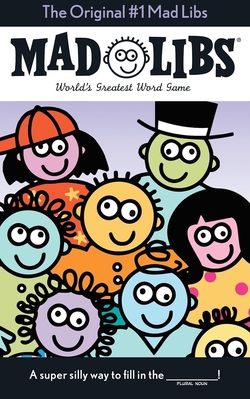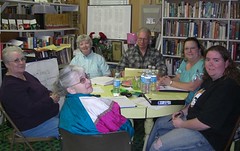Aside from my own immediate family, aka my younger sister, my eyes have been the only set that have glanced at the pages of my novel thus far. As it turns out, this fact has proven to be both good and bad. For one, since it is my first book, I haven't had to deal with the dreaded negative feedback that so often compels writers to cease
writing. One the other hand however, I haven't had a chance to hear any feedback at all. Not positive encouraging feedback, or even helpful hints that could make my novel better.
So, with an anxious mind and a heavy heart, I set out to remedy those issues by setting up a
focus group. The concept of a focus group is a pretty simple one, and it really can be set up in a variety of ways. the route
I chose to take involved a round-table gathering of sorts with a small group of individuals I felt would be a part of my
target market. The results, or the conversation, that evolved from this meeting will be posted a little later on this week, but I have to tell you it was extremely helpful. Not only did I find myself surrounded by a group of people who were actually interested in reading my book, but I also discovered several aspects of my story that needed just a little more explanation.
To organize your own focus group, here are a few possible ideas/ guidelines you could follow:
1. Choose a format.
Will you be present? Will you give them a copy of your manuscript in advance? Will you all meet formally or will your focus group involve a questionnaire given online? After you answer these questions you should be ready for number two.
2. Choose/Gather your participants.
At this point you should consider the type of individuals you will involve in your group, as well as how you will reach them. This can involve anything from calling local book clubs to flacing fliers in book stores and libraries. Your methods are up to you, but if you choose to utilize a lier as advertisement for your event, be sure to include contact information for yourself as well as the qualifications you've decided upon based on your target market.
3. Create your materials.
Next you will need to create or gather the materials you will need to conduct your focus group. If you plan to give each member a copy of your manuscript you will need to provide copies. Also, I highly reccommend a timeline or series of questions created in advance to help facilitate the event and keep it moving smoothly and efficiently. For my event, I planned to read portions of my manuscript aloud and let the group discussion evolve from there. I also had a series of questions to ask participants on hand in case the discussion got off topic (as is very possible when dealing with younger individuals and even adults).
4. Set up meeting time.
After finding all of the indivduals that are willing and able to take part in your focus group, I suggest finding a common time that works for them all. This demonstrates the importance of maintaining a file of participants and their contact information. Incentives for participation may also be utilized if you are having trouble gathering participants.
5. Conduct your focus group (record the event).
This is the easy, and by far, most exhilarating part of the whole process. On the day and time you've chosen to meet, get right down to business. An introduction is definitely a good idea, but keep it short. Also allow for a short icebreaker at the beginning to get participants comfortable with one another. I also HIGHLY recommend that you record the event in some way. Options for recording include simply taking notes, or even using and audio or video recorder. No matter the method you choose, make sure you have the permission of your participants, and if the participants are minors, you need the permission of their parents.
6. Compile your data/ make adjustments to your work as you see fit.
After the event, give yourself a day or two to digest all that you've learned before making any changes to your work. After this buffer period has ended, examine your recordings or notes and highlight or take note of the pertinent responses and advice. Remember, even if you don't agree with someone's opinion, you should serioulsy consider what they've said. Afterall, this sampling of individuals is representing the greater population of individuals who will or won't choose to read your book.
 Image via WikipediaAccording to wikipedia, there are exactly four types of rejection letters: literary, job, college, and romantic. Under the banner of literary rejection, there are four versions that are as follows:
Image via WikipediaAccording to wikipedia, there are exactly four types of rejection letters: literary, job, college, and romantic. Under the banner of literary rejection, there are four versions that are as follows:



![Reblog this post [with Zemanta]](http://img.zemanta.com/reblog_e.png?x-id=c89e46a2-8f1d-442e-9a93-24b8281e3d35)
![Reblog this post [with Zemanta]](http://img.zemanta.com/reblog_e.png?x-id=a616d597-673e-4d6a-b5e6-7049228c487e)
![184] The Great Gatsby – F. Scott Fitzgerald « A Guy's Moleskine ...](http://images.google.com/images?q=tbn:xcSb7PhNi7Ms1M:mattviews.files.wordpress.com/2009/02/gatsby1.jpg)
![Reblog this post [with Zemanta]](http://img.zemanta.com/reblog_e.png?x-id=55731b63-20fe-4a5b-85e1-e287a7c4473a)

![Reblog this post [with Zemanta]](http://img.zemanta.com/reblog_e.png?x-id=3340d9a0-d18a-4893-90e2-015f2b552804)

![Reblog this post [with Zemanta]](http://img.zemanta.com/reblog_e.png?x-id=1c8fe176-0e2f-4051-a9f7-68a12b383a9c)



 ShareThis
ShareThis